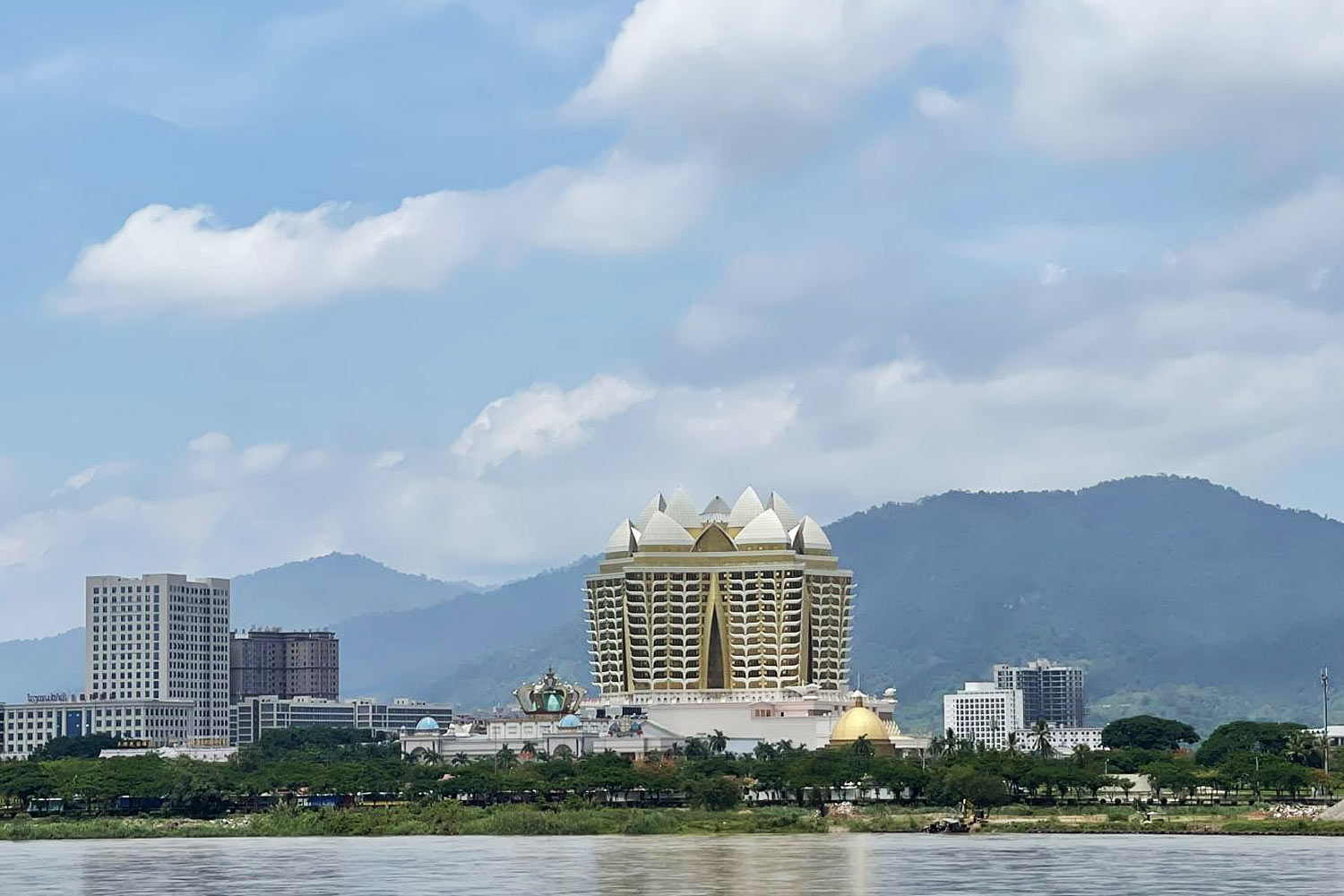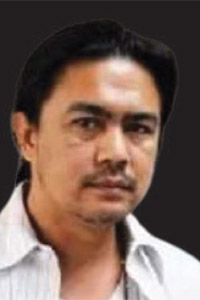
Today, PM and Finance Minister Srettha Thavisin and other cabinet members will visit Chiang Rai province. One stop in the busy itinerary is Mae Sai Border Pass No.1 where they will discuss on how to boost border trade and how to fight against narcotics that flow through the porous border.
Readers might scratch their heads why the cabinet chose the relatively small northern border province as Chiang Rai the cabinet's official first visit -- indeed the first province the PM visited was the globally renowned Phuket.
While pundits can entertain themselves with their own analysis, one thing certain is that Chiang Rai is everything but ordinary.
The list of cabinet members is not ordinary either. To start with there are two deputy prime ministers in the entourage -- Anutin Charnvirakul, also interior minister, and Pol Gen Patcharawat Wongsuwon, an environmental minister.
Also there are ministers from major ministries -- Transport Minister Suriya Juangrungreangkit, Agriculture Minister Capt Thamanat Prompow, Justice Minister Pol Col Thawee Sodsong, and Deputy Finance Minister Julapun Amornvivat.
Chiang Rai province's four districts (Mae Sai, Chiang Saen, Chiang Khong and Wieng Kaen), are major border-trade markets. Each district has its own trade speciality: tourism, retail, grey and illegal businesses.
Among these four, the most important is Chiang Saen district as it is located at the notorious Golden Triangle on the border of Thailand, Myanmar and Laos. Across the Mekong River in Laos is the King Romans Casino part of the Golden Triangle Special Economic Zone. The casino is owned by a Chinese investor known as Zhao Wei, owner of Hong Kong-based King Romans Casino franchise in the Golden Triangle Special Economic Zone.
Zhao Wei is one among four men sanctioned by the US Treasury Department since 2018 for being allegedly linked to drug and human trafficking throughout the region.
Recently, Chuvit Kamolvisit, the former massage parlour tycoon and now whistleblower, claimed Zhao Wei is behind a grey business run by Chinese investors in Thailand, a claim which Zhao Wei himself denied.
Zhao Wei has made a fortune from casinos. Indeed, he had run casinos along the Myanmar-China border, before moving to the Golden Triangle in 2007 after getting a 99-year concession from the Lao government to operate a casino and entertainment complex along the Mekong River.
Needless to say, he has many powerful friends, many of them influential Thai politicians, investors and even some media personalities.
During the past few years, there have been attempts to lobby for a Thai-Lao bridge in the Golden Triangle area.
The scheme won big support from politicians, among them former deputy house speaker Suchart Tancharoen.
While the King Romans Casino and adjacent entertainment complex are symbols of economic development in the Mekong region, they have been cast in a negative light by some Western countries and media.
The Golden Triangle has been linked with poaching, human smuggling, narcotics, crime syndicates and on-line scammers.
In March last year, I wrote a news report on local Thais who worked at King Romans Casino.
Originally, they were recruited as webmasters for on-line gambling. Because of the lucrative pay, these Thais moved to stay at the casino. They ended up running scams duping Thais, Chinese and foreign investors.
As I conducted the interview, they were confined to their office in King Romans Casino, on top of a high-rise building. I was told the area is a hub of scammers.
These Thai workers want to return home. When they asked to go back, Chinese bosses threatened them. Finally they hired Lao people to help them flee to Thailand.
Hit by the negative news reports, the operators of King Roman Casinos drove these people out.
The scammers and on-line gambling joints moved to Tha Khi Lek in Myanmar, opposite Mae Sai district in Chiang Rai, which PM Srettha and his cabinet members will visit.
For local people, PM Srettha's visit rekindles hope. The border business has yet to rebound.
Before the Covid pandemic hit the economy in 2018, Mae Sai was a busy trading town. Without a real economy, local people turned to illegal businesses.
The trip today indicates the Srettha government means business. But border trade in Chiang Rai is more than meets the eye. The government must beware that its trade promotion policy will only help real business, not illicit trade in that areas.
Because PM Srettha is a businessman, some fear he will overlook the social dimension. Looking at the cabinet's itinerary, I sigh with relief as one activity involves a talk with ethnic groups to discuss nationality problems.
Despite their families having been born and living on Thai soil, many ethnic villagers lack Thai citizenship, which deprives them of the same rights as ordinary Thais.
It is dismaying that Education Minister Pol Gen Permpool Chidchob will not join the trip. Local people as well as teachers and children have many problems and complaints to convey.
One hot issue concerns the 126 Myanmar children found learning at schools in Ang Thong early this year.
They were repatriated to Myanmar for allegedly breaching immigration law. Sending back Myanmar kids to their hometown amid a civil war violates the non-refoulement principle, not to mention moral principles.
The repatriation of the Myanmar students will be another black stain on the Thai human rights record -- not a good sign as Thailand prepares to bid for a seat on the United Nations' Human Rights Commission. Hopefully, the new government will work fast to handle the issue.
Chiang Rai is a border town serving as a bridge to two close neighbours, Myanmar and Laos.
But the concerns here are not just about trade and economics, or tackling crime. Our neighbours are not in good health.
As we know, Myanmar has been ravaged by civil war since the coup in 2021. Border areas have become a flashpoint where the Myanmar military fights armed anti-government groups.
The government needs to understand the complex situations involved including the social and political dimensions, or it might end up doing harm to local people and the economy.
Laos will emerge as a big problem soon. The local currency, the kip, is being devalued like never before, causing major problems for local trade. The government must step in and help local investors.
The trip today means the government is listening to local people. I hope this government will be different, and won't resort to the top-down approach of the Prayut government.
So, I hope PM Srettha will be a leader who listens to people on the ground. That way, he can create sustainable change for the country.
